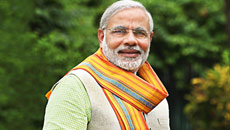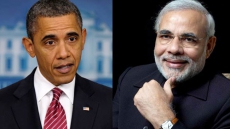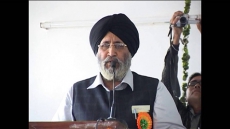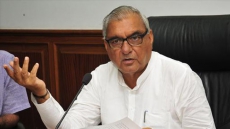In a near replay of the incidents in Iraq, large numbers of Indian nurses are caught in spiralling violence in Libya, where rival militant groups seek to control the capital's international airport, and have approached the Indian mission for help and even evacuation.
Over the last two weeks, the north African country has plunged into chaos following deadly clashes between government forces and Islamist militants in the capital Tripoli and Benghazi where more than 150 people, most of them civilians, have been killed.
Taking note of the fighting, Indian Ambassador in Libya, Azar A. H. Khan, met the nurses in the Tripoli hospitals and assured them of their safety.
"Everybody is safe here. We are in constant touch with the nurses," Khan told IANS over phone from Tripoli.
The ambassador, however, said that only some Indian nationals, mostly nurses, have approached the embassy for help in leaving the country.
"It is only in some places around the airport where fighting is raging... rest of the places are fine," he said.
Panic gripped the Indian nationals after incessant shelling rocked the area around Tripoli airport and elsewhere, in a two week-long battle since mid-July.
However, of the 430 Indian nurses based in two hospitals in Tripoli, only 88 have sought help from the Indian mission.
A total of 365 nurses are based in Tripoli Medical Centre (TMC), while 71 medical staff members, comprising technicians, paramedics and nurses, are based in Tripoli's Al Khadra hospital, an embassy official said.
Nearly 74 out of 365 in TMC have shown their inclination to leave the country, added the envoy.
The embassy has been arranging for passports and other travel documents for all those who want to exit Libya by road.
Also, some 350 nurses are located in Benghazi, another restive city in eastern Libya, but only a few have wished to leave their place.
Ambassador Khan said the number of those wanting to leave the country keeps fluctuating as people have financial issues, apart from their own safety.
Libya has around 6,000 Indians, including 1,500 unregistered workers, who are based in Tripoli and nearby towns. Most are from Kerala.
Meanwhile, following the closure of Tripoli airport, the Libyan civil aviation ministry has announced resumption of limited air operations from Mitiga airport in Tripoli and Misurata airport (200 km from Tripoli) by Al Afriqiya and Libyan Airlines.
"Tripoli's military airport can take a few people out of the country, while the main exit route that we advise is through the check points on Libyan-Tunisian and Libyan-Egyptian borders," the ambassador said.
The embassy said Indians have been advised to cross the Libyan border in small batches into safer countries like neighbouring Tunisia.
The embassy has appointed area coordinators in regions across the country, to update the mission on concerns of its nationals residing there.
The country witnessed a major evacuation of over 18,000 Indian nationals during the NATO-led military intervention and the fall of the Colonel Gaddafi regime in March 2011.
The external affairs ministry said Tuesday that the Indian government has begun making arrangements to facilitate the return of the around 4,500 Indian nationals, including 750 nurses, working in Libya.
A day after issuing an advisory to Indian nationals to avoid conflict zones in Libya and use all available means to exit the country, External Affairs Minister Sushma Swaraj reviewed the security situation impacting on Indian nationals in Libya, said the ministry spokesperson.
The problems for Indian nurses in Libya come close on the heels of the rescue of 46 Indian nurses from Iraq. Forty construction workers continue to be held hostage by Islamic State militants, who have overrun a considerable part of northern Iraq.






